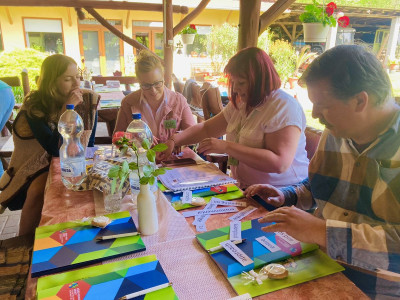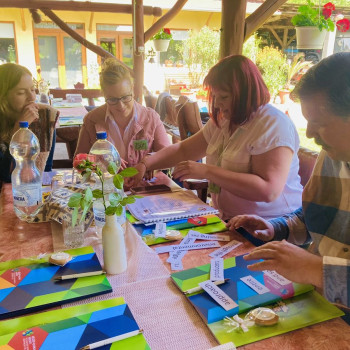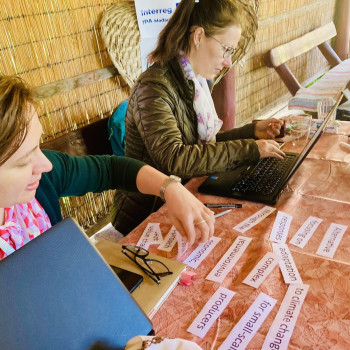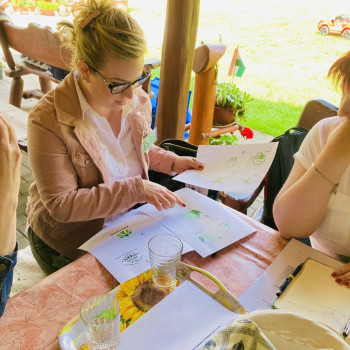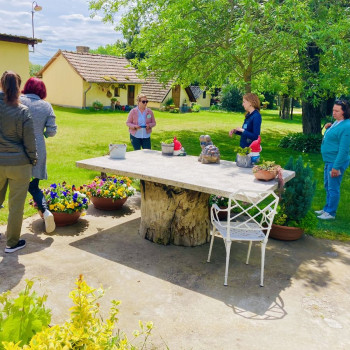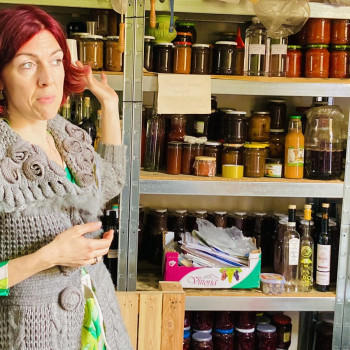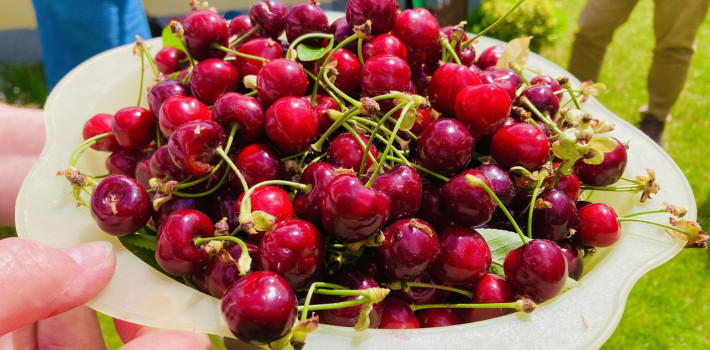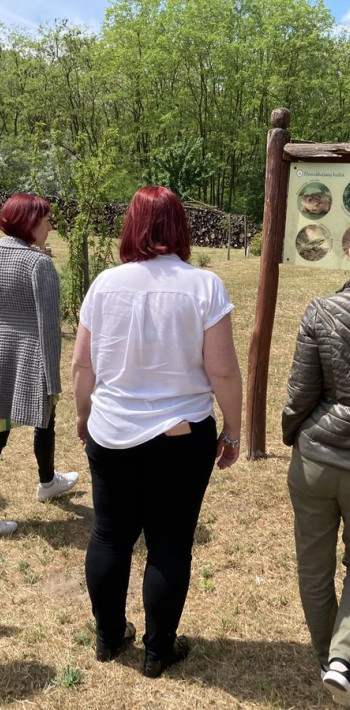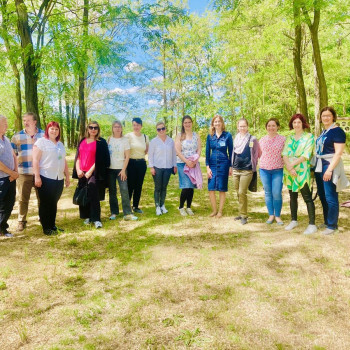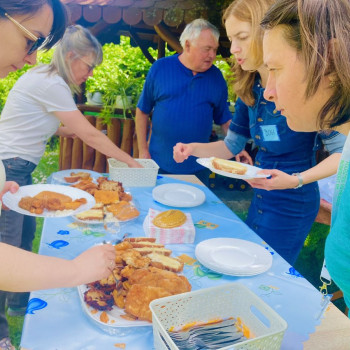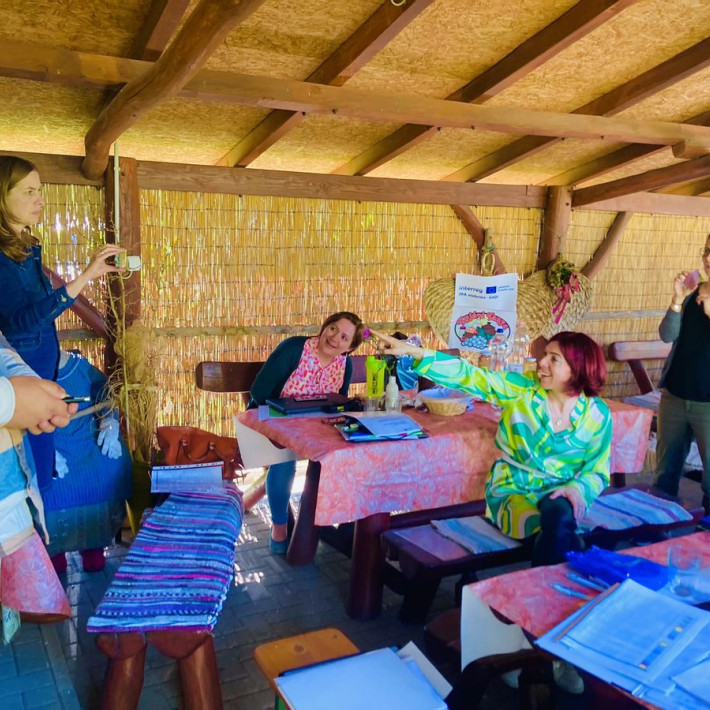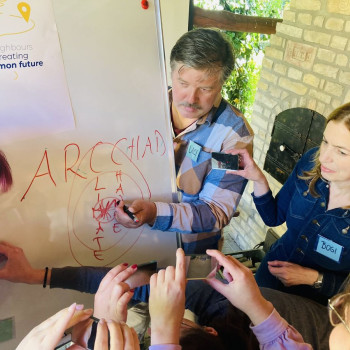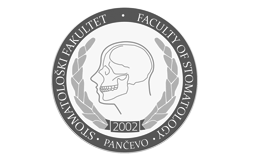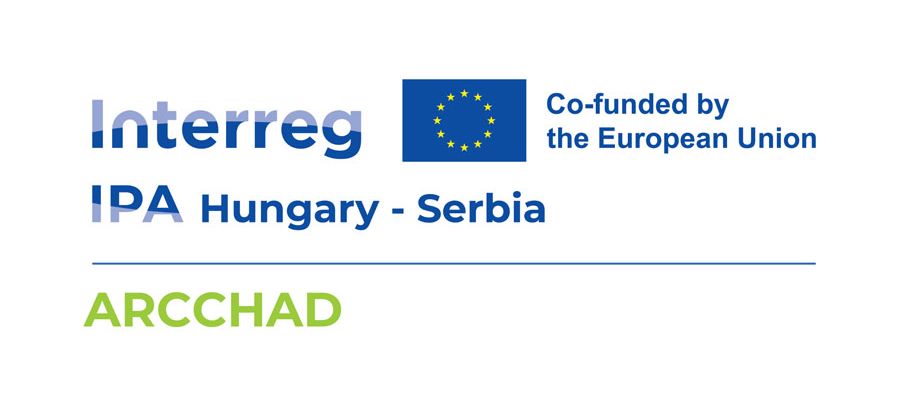
ARCCHAD PROJECT
The implementation of the two-year ARCCHAD project, in cooperation with two partners from Hungary and two partners from Serbia, started on June 1, 2024. The project will be carried out with the support of the INTERREG IPA VI-A Hungary-Serbia program. The members of the ARCCHAD project consortium met at the Kujáni Farm near Kecskemét on Friday, June 21, 2024. Prof. Dr. Jelena Vapa Tankosić, Prof. Dr. Svetlana Ignjatijević, and MSc Ana Perenić attended the meeting on behalf of the University Business Academy.
The ARCCHAD project (Alternative Responses to Climate Change Adaptation for Small-Scale Producers, focusing on complex economic, environmental, and social approach through the entire value chain) aims to support small-scale farmers by building their capacities and reducing losses caused by climate change in border regions. Two Hungarian and two Serbian partner teams are collaborating on the project, offering alternative adaptation solutions through joint studies, educational programs, and various events, both online and offline.
The key topics addressed by the ARCCHAD project are:
- Agro-digitalization: Introducing modern technology to small-scale farming.
- Alternative Food Systems: Developing sustainable methods for food production and distribution.
- Farming Social Innovation: Supporting community collaborations and social innovations in agriculture.
- Climate Change Awareness: Providing education and events to raise awareness and help manage climate change impacts.
Through cross-border cooperation, we aim to make small-scale farmers more resilient to the challenges posed by climate change.
The negative effects of climate change particularly affect small-scale farmers. Increasingly frequent extreme weather changes, such as droughts, floods, and heat waves, negatively impact productivity. The ARCCHAD project aims to help small-scale farmers with alternative solutions.
Our common goal is to support small-scale farmers with innovative solutions, as they are one of the most vulnerable segments of the agricultural sector. They also feel the effects of climate change, but unlike larger economies, they have fewer resources for protection. This is why cross-border (international) cooperation and experience-sharing are important, as they provide great opportunities for learning.
The visit to Kujáni Farm, which is an innovative small farm itself, was very exciting. They mainly focus on fruit production but have also started implementing several experimental projects. After a Q&A session, we symbolically “fought against the evil forces of climate change” with laser light in a Star Wars-themed game. Our aim is to transfer this power in the form of knowledge, experience, educational materials, and studies to small-scale farmers.


